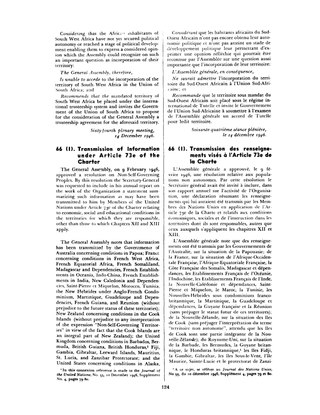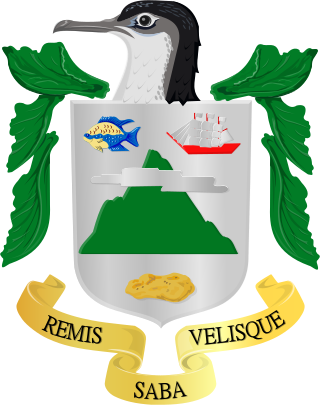Related Research Articles

The Netherlands Antilles, also known as the Dutch Antilles, was a constituent Caribbean country of the Kingdom of the Netherlands consisting of the islands of Saba, Sint Eustatius, and Sint Maarten in the Lesser Antilles, and Aruba, Curaçao, and Bonaire in the Leeward Antilles. The country came into being in 1954 as the autonomous successor of the Dutch colony of Curaçao and Dependencies, and it was dissolved in 2010, when like Aruba in 1986, Sint Maarten and Curaçao gained status of constituent countries within the Kingdom of the Netherlands, and Saba, Sint Eustatius, and Bonaire gained status of special municipality of Netherlands as the Caribbean Netherlands. The neighboring Dutch colony of Surinam in continental South America, did not become part of the Netherlands Antilles but became a separate autonomous country in 1954. All the territories that belonged to the Netherlands Antilles remain part of the kingdom today, although the legal status of each differs. As a group they are still commonly called the Dutch Caribbean, regardless of their legal status. People from this former territory continue to be called Antilleans in the Netherlands.

Bonaire is a Caribbean island in the Leeward Antilles, and is a special municipality of the Netherlands. Its capital is the port of Kralendijk, on the west (leeward) coast of the island. Aruba, Bonaire and Curaçao form the ABC islands, 80 km off the coast of Venezuela. The islands have an arid climate that attracts visitors seeking warm, sunny weather all year round, and they lie outside the Main Development Region for tropical cyclones. Bonaire is a popular snorkeling and scuba diving destination because of its multiple shore diving sites, shipwrecks and easy access to the island's fringing reefs.

Chapter XI of the United Nations Charter defines a non-self-governing territory (NSGT) as a territory "whose people have not yet attained a full measure of self-government". Chapter XI of the UN Charter also includes a "Declaration on Non-Self-Governing Territories" that the interests of the occupants of dependent territories are paramount and requires member states of the United Nations in control of such territories to submit annual information reports concerning the development of those territories. Since 1946, the UNGA has maintained a list of non-self governing territories under member states' control. Since its inception, dozens of territories have been removed from the list, typically when they attained independence or internal self-government, while other territories have been added as new administering countries joined the United Nations or the UN General Assembly (UNGA) reassessed their status.

A double referendum was held in Transnistria on 17 September 2006. Voters were asked whether they approved of the possibility of renouncing independence and integration with Moldova, or alternatively independence and a possible future integration into the Russian Federation.

The Netherlands Antilles was an autonomous Caribbean country within the Kingdom of the Netherlands. It was dissolved on 10 October 2010.
A constitutional referendum was held in Bonaire on 17 December 2010. The new constitution would make the island a municipality within the Netherlands. Although the results showed 88% had voted against the new status, the referendum had required a 51% turnout and was subsequently declared invalid as the actual turnout was only 35%.

The Caribbean Netherlands is a geographic region of the Netherlands located outside of Europe, in the Caribbean, consisting of three special municipalities. These are the islands of Bonaire, Sint Eustatius, and Saba, as they are also known in legislation, or the BES islands for short. The islands are officially classified as public bodies in the Netherlands and as overseas territories of the European Union; as such, European Union law does not automatically apply to them.

A status referendum was held on the island of Sint Maarten on 22 June 2000.
A status referendum was held on the island of Bonaire on 10 September 2004. A majority voted for integration into the Netherlands.
A status referendum was held on the island of Saba on 5 November 2004.
A status referendum was held on the island of Sint Eustatius on 8 April 2005.

A series of unofficial referendums on native rights and good governance was held in Mexico on 21 March 1999. It was organised by the Zapatista Army of National Liberation (EZLN), who proposed the government function in the interests of the people, that the country demilitarize in order to promote peace, that indigenous Mexicans be fully included in national life and have their rights recognized in the constitution. While all these measures passed overwhelmingly, only around 2.5 million people voted in the referendum, while 37 million people voted in the general election the following year.

A number of referendums on alcohol licensing were held in New Zealand between 2 December 1894 and 15 August 1987. Because of their differing questions and rules, these referendums can be broken down into three time periods divided by what options were presented to voters.

A status referendum was held on the island of Saba on 14 October 1994, alongside simultaneous referendums on Bonaire, Sint Eustatius and Sint Maarten. A majority voted for maintaining the status quo.

A status referendum was held on the island of Sint Eustatius on 14 October 1994, alongside simultaneous referendums on Bonaire, Saba and Sint Maarten. A majority voted for maintaining the status quo.

A non-binding status referendum was held in Bonaire on 18 December 2015. Voters were asked "Do you agree with the current status, which is a direct link to the Netherlands?" As a majority voted no, a second referendum on the preferred status will be held.

Moldova–Transnistria relations are the political and economic relations between the Republic of Moldova and Transnistria, an unrecognized state between the Dniester River and Ukraine. During the dissolution of the Soviet Union, political tensions in the Moldavian Soviet Socialist Republic led to Transnistria declaring independence from Moldova, culminating in the Transnistrian War of 1992. As part of the ceasefire agreement ending the war, a Joint Control Commission composed of Moldovan, Transnistrian, and Russian forces was established to supervise the demilitarized zone which was located in the Transnistrian region. The Joint Control Commission still supervises the zone, and negotiations to resolve the dispute are ongoing. The negotiations are supported by the Russian Federation, Ukraine, the United States, the European Union, and the Organization for Security and Co-operation in Europe (OSCE).
Same-sex marriage has been legal in Bonaire, Sint Eustatius and Saba since 10 October 2012, the effective date of legislation passed by the States General of the Netherlands enabling same-sex couples to marry. The Caribbean Netherlands was the first jurisdiction in the Caribbean to legalise same-sex marriage, and was followed a few months later by French territories, including Guadeloupe and Martinique, in May 2013.
Events in the year 2022 in Liechtenstein.
References
- ↑ ch, Beat Müller, beat (at-sign) sudd (dot). "Bonaire (Niederländische Antillen), 21. Oktober 1994 : Status -- [in German]". www.sudd.ch. Retrieved 5 June 2017.
{{cite web}}: CS1 maint: multiple names: authors list (link)